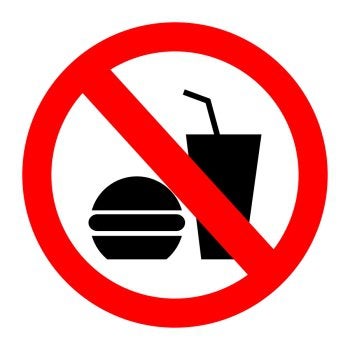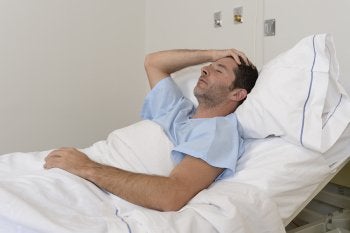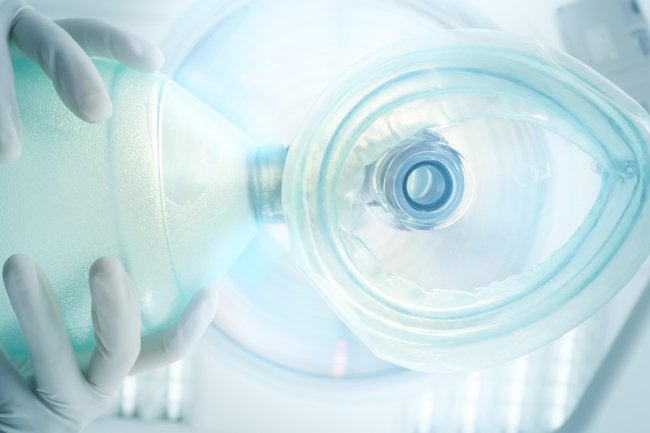-
Sleep and Your Baby: A Look at the First Three Months
Even if you’ve previously had children, bringing your baby home from the hospital represents a major transition in your life. Brush up on the basics of what to expect, like the sleeping habits of newborns. When you watch the featured video, you’ll learn that newborns sleep 16 to 17 hours per day. By four to six months, most babies will be sleeping through the night, and they’ll be awake more during the day.
This video offers helpful tips for regulating your baby’s sleep schedule. Put your newborn down for a nap every two hours. If you wait until your baby is already overly tired and fussy, he or she will have a harder time falling asleep.
At the Center for Vasectomy Reversal, we’re proud of all of the babies we’ve helped make possible over the years. When you’re ready to become a father, call Dr. Green at (941) 894-6428 to learn more about vasectomy reversals in Sarasota.
-
Get the Facts Behind Misconceptions About Vasectomy Reversals

There’s a lot of misinformation about vasectomy reversals. Sometimes, the myths about the procedure may make men hesitant to consult a vasectomy reversal surgeon about their options. This is unfortunate since the procedure is a fairly routine surgery with a high success rate. And because it’s an outpatient surgery, men often find it convenient to fit into their busy schedules. Get the truth about vasectomy reversals before you make your decision.
Myth: Vasectomy reversals are linked to prostate cancer.
There is a persistent myth that men who undergo a vasectomy reversal are at a higher risk of getting prostate cancer. This would be alarming if it was true, but fortunately, it’s not. Numerous studies have demonstrated that there is no association between vasectomy reversals and prostate cancer.
Myth: Men stop producing sperm after a vasectomy.
Before you undergo surgery, it’s helpful to brush up on the basics of anatomy so you understand exactly what’s going to happen. Sperm is produced in the testicles. The vas deferens is the tube that carries the sperm from the testicles through the penis. During a vasectomy, the vas deferens is surgically clipped. This prevents the sperm from traveling out of the body. However, the procedure doesn’t affect the testicles at all, which means men continue to produce the same amount of sperm that they normally would. This means that reconnecting the vas deferens can be all that’s needed to restore male fertility.
Myth: Vasectomy reversals aren’t successful if it’s been too long.
It’s true that surgeons see higher success rates in patients who have the reversal within a few years of having the original surgery. But waiting longer doesn’t actually affect the success rate all that much. Even if it’s been 10 or 20 years, a reversal can be a success. The most important factor is to choose a surgeon who specializes in this procedure, and who has a great deal of experience with it.
Your best source of accurate, reliable information about the procedure is a vasectomy reversal surgeon. Talk to Dr. Joshua Green in Sarasota at the Center for Vasectomy Reversal and get the answers to your questions. New and current patients can reach us at (941) 894-6428.
-
Here’s Why You Can’t Eat or Drink Before Surgery

With vasectomy reversal and other surgeries, it’s common to receive instructions not to eat or drink anything for a period of 8-12 hours before your surgery—including just a few sips of water. While it can be somewhat frustrating to follow this rule, the reason your doctor makes this recommendation is important.
When you are under general anesthesia or a twilight sedative, your body will not aspirate, or clear the airway of a blockage caused by saliva or food or liquids you’ve consumed. When you have food in your stomach, the risk of a blockage is higher, and you may choke during the surgery. Additionally, there may be significant post-surgical nausea if you go into surgery without an empty stomach, and that’s a complication that’s easier to prevent than it is to treat.
When you schedule your vasectomy reversal surgery with Dr. Joshua Green at the Center for Vasectomy Reversal, you can expect the highest quality of care within our state-of-the-art operating room as well as dedicated attention during your surgical consults and follow-up visits. To learn more about undergoing vasectomy reversal in Sarasota, FL, give us a call at (941) 894-6428.
-
What to Know about Post-Op Scrotal Swelling

Vasectomy reversal is performed using microsurgical techniques that are minimally-invasive, so they cause less trauma to the body and facilitate a faster, easier recovery. In fact, vasectomy reversals are most often performed on an outpatient basis, meaning you won’t even need to spend a full day in the hospital following your surgery. There are, however, still some side effects of surgery to consider, and the most prevalent and perhaps uncomfortable will be scrotal swelling. Swelling is a healing response in the body, so it’s a natural part of surgical recovery and shouldn’t cause alarm after your vasectomy reversal .
Swelling is the most common side effect of surgery.
Most men will experience post-op swelling in the scrotum, which may be mild or quite substantial. Generally, even significant swelling is not a sign of any problems. It is simply a natural part of the body’s healing process and will subside within a few days.
Swelling should not be accompanied by severe pain or bruising .
Some mild pain and bruising are normal, but when pain begins to feel intolerable or bruising is widespread, it is important to call your surgeon and discuss these symptoms. This is especially true if you are experiencing severe swelling with intense pain.
A cold compress will offer the most relief.
To control swelling, the best thing to do is take it easy and rest for the first full day after surgery while using a cold compress. Apply the cold compress to the scrotal area for about 20 minutes, and then wait about 40 minutes before the next application.
For expertise in vasectomy reversal, you can count on Dr. Joshua Green at the Center for Vasectomy Reversal in Sarasota. Not in Florida? No problem! We treat a high volume of out of town patients , often only requiring 2-3 days to complete the surgery and follow-up care. For more information about our services, give us a call at (941) 894-6428.
-
ICSI: Your Step-By-Step Overview
While vasectomy reversal is the most common procedure to restore fertility for men who have undergone a vasectomy, there are circumstances where it makes sense to consider other surgical alternatives, such as sperm aspiration. With sperm aspiration, sperm is directly obtained from the epididymis through a needle guided by an operating microscope. This is actually the first step in ICSI, or intracytoplasmic sperm injection, which is paired with IVF, or in-vitro fertilization. This video shows you a complete look at the ICSI procedure, which may play a role in your family planning if your partner is also experiencing fertility issues.
If you want to weigh the pros and cons of vasectomy reversal and ICSI, Dr. Green at the Center for Vasectomy Reversal can help you make your decision. You can schedule a vasectomy reversal consultation with us in Sarasota by calling (941) 894-6428, or visit our website to learn more.
-
Can Eating Disorders Cause Male Infertility?

Both eating disorders and infertility in men are underrecognized, yet common health concerns; incidentally, the two can go hand in hand. Eating disorders can cause lasting damage to the body and may result in infertility in men. Often, eating disorders are only associated with women, but men account for about 5-15% of anorexia and bulimia cases and 35% of binge eating disorder cases. Additionally, because these numbers are only based on reported cases, they may actually be higher—many men will suffer in silence with eating disorders. For any man struggling with an eating disorder, seeking treatment is important for many reasons, including the preservation of future fertility. Continue reading to gain a better understanding of how eating disorders can be a cause of male infertility .
Weight Changes and Sperm Quality
Being over- or underweight can have an impact on sperm count as well as sperm motility and overall sperm quality. With anorexia nervosa, men may be dangerously below a healthy weight range, and they might also utilize risky solutions to continue battling body fat, such as diet pills, which can cause further harm to sperm count and quality.
Risks of Over-Exercising
Along with undereating or uncontrollable binge eating, eating disorders may lead to over-exercising, which can further diminish sperm count due to the consistently higher temperature of the testes during exercise.
Potential Nutritional Deprivation
Even with binge eating disorder, which is characterized by binging sessions where someone will consume large quantities of food in a single sitting, malnourishment is common. That’s because the body is not getting the balanced diet it needs to stay healthy, and decreased sperm production may be one of the consequences of that nutritional deprivation.
Dr. Joshua Green at the Center for Vasectomy Reversal is dedicated to providing resources for men struggling with infertility, including those who are looking for vasectomy reversal procedures in Sarasota. To learn more about our practice , give us a call at (941) 894-6428 or visit our website.
-
Is Nausea Normal After General Anesthesia?

Before you undergo a vasectomy reversal , you’ll consult the anesthesiologist to discuss your options. You may prefer general anesthesia, which will completely put you to sleep. However, you should be aware that general anesthesia can cause some side effects. One of those is nausea.
Why Surgery Leads to Nausea
Some people are more susceptible than others to nausea after surgery. And as a general rule of thumb, the longer a patient is asleep, and the more anesthesia drugs that are required, the greater the risk there is of nausea. The average vasectomy reversal surgery takes two to three hours, depending on the complexity. Other factors can also play a role in causing nausea, including the following:
- Being dehydrated from fasting before surgery
- Taking medication on an empty stomach
- Returning to a normal diet too quickly
How You Can Prepare
Tell the anesthesiologist if you’ve previously experienced nausea after having surgery. He or she should also know if you tend to be susceptible to nausea in everyday life. If so, the anesthesiologist can select the anesthesia drugs with an eye toward minimizing the risk of nausea. The doctor may also prescribe medications that can combat nausea. These medicines may be taken to prevent nausea or to treat it once it develops.
How You Can Cope
If you do experience nausea after being under general anesthesia, take any medications as prescribed. You’ll need to try to avoid vomiting, as the stress of vomiting can affect the integrity of the surgical site. Minimizing the risk of vomiting might seem impossible, but it’s really quite simple. Just avoid exposing yourself to the following:
- Strong smells
- Strongly flavored foods
- Air temperature that’s uncomfortably warm
- Fluids that are too cold or too hot
- Dehydration
- Pain
Note that some people who are prone to nausea avoid taking pain medication, but taking your medications as prescribed can actually help reduce nausea. Take it with small sips of water. Stick with clear fluids after surgery until you no longer feel nauseated.
We pride ourselves on extensive patient education, and pre- and post-operative support services here at the Center for Vasectomy Reversal. Call the office of Dr. Joshua Green, vasectomy reversal surgeon in Sarasota, if you have any questions before or after your procedure. You can get in touch at (941) 894-6428.
-
Nicknames to Consider for These Popular Baby Names
Once you get the exciting news that your vasectomy reversal has indeed been successful, and you and your partner are expecting, it’s time to start thinking about baby names! There are lots of factors to consider when choosing a great baby name, such as family traditions, cultural heritage, and of course, the nickname possibilities. Watch this featured video to get the scoop on nicknames for some of the most popular baby names worldwide.
One of the most popular names for girls is Amelia, which lends itself to nicknames like Amy, Mel, Lia, and Millie. Dom, Dommie, Nick, and Nico are all great nicknames for Dominic. Gianna, which is actually already a shortened form of the name Giovanna, offers these nickname possibilities: Gia, Gigi, and Anna.
Dr. Joshua Green at the Center for Vasectomy Reversal has been privileged to help countless couples become parents . Call us today at (941) 894-6428 to become our next vasectomy reversal success story in Sarasota!
-
Is Reversal Success Affected by a Cauterized and Tied Vas?

Vasectomy reversals are highly complex, delicate procedures that require the expertise of a specialist. The success of this procedure is dependent on many factors. However, it isn’t heavily influenced by whether the original vasectomy surgeon cauterized and tied the vas deferens. (Usually, the original surgeon will either cauterize or tie off the vas, rather than using both techniques.)
The factor that is more important than the technique used by the original surgeon is whether there is sperm present inside the vas. The vasectomy reversal surgeon will check for the presence of sperm before reconnecting the vas deferens. If sperm is present, then the severed ends of the vas can be re-cut and then sutured together with very small stitches. If sperm isn’t present inside the vas, then the surgeon will need to perform a more complex surgical technique. This involves attaching the vas to a tubule from the epididymis.
Dr. Joshua Green will discuss your surgical options with you during your initial consultation at the Center for Vasectomy Reversal. Call (941) 894-6428 to request an appointment with our experienced vasectomy reversal surgeon in Sarasota.
-
What Is Sperm Washing? (And Other Common Questions About Sperm)

On average, one milliliter of semen contains 15 million to more than 200 million sperm. It only takes one sperm to fertilize an egg, but the journey it must take to reach that egg can be incredibly challenging. An egg released by a follicle will only stay in the fallopian tube for about 24 hours. If sperm can’t reach the egg and fertilize it, pregnancy won’t happen that month. When male infertility is a factor, then it’s even more difficult for a couple to get pregnant naturally, which is why so many turn to in vitro fertilization (IVF). Sperm washing is one part of that process.
What is sperm washing?
Sperm washing is the processing that semen goes through before it can be used in an assisted reproduction procedure, like IVF or intrauterine insemination (IUI). The washing technique separates sperm from semen, and also eliminates dead or otherwise unviable sperm from the usable sample. Additionally, prostaglandins are removed from the sperm. These are naturally occurring chemicals that can interfere with fertility.
I know women must give up alcohol before pregnancy, but what about men?
Alcohol consumption affects male fertility as well as female fertility. Men who consume alcohol regularly or to excess are at a higher risk of reduced sperm quality and quantity. Fortunately, the effects are quickly reversed once you abstain from alcohol.
Does my body weight affect my sperm?
Yes. Men who are either underweight or overweight have a higher risk of male infertility. Overweight and obesity can affect the production of sperm, causing a low sperm count. Your body weight can also affect the quality of sperm.
What about body temperature?
Excessive heat can significantly affect your sperm count. If you’re trying to become a father, you should avoid hot tubs and saunas. Avoid placing sources of heat near your scrotal region. These include laptops and heating pads.
When you become a patient at the Center for Vasectomy Reversal , you’ll have the option to have sperm aspirated for use in an IVF cycle. Dr. Green will explain all of your options during your consultation. Call our vasectomy reversal clinic in Sarasota at (941) 894-6428.
Recent Posts
Popular Posts
categories
- Uncategorized
- Sperm Retrieval
- vasectomy reversal
- Emergency
- Dr. Green
- sperm count
- fertility
- male infertility
- MESA
- medical care
- low sperm count
- IVF
- male fertility testing
- anesthesia
- pregnancy
- sperm aspiration
- semen analysis
- post-vasectomy pain syndrome
- infertility
- VE
- anti-sperm antibodies
- older dad
- general anesthesia
- gender reveal party
- post-operative infections
- baby name
- parent
- baby's first year
- fertilization process
- spinal anesthesia
- ACS Fellow
- nutrition tips
- concierge-level care
- fertility planning app
- azoospermia
- out-of-town patients
- V-V
- post-vasectomy reversal
- conceiving
- vasectomy
- vasoepididymostomy
- smoking
- sperm quality
- baby registry
- infographic
- surgical care
- surgical consultation process
- prostate cancer
- baby gender
- family time
- COVID
- Baby Shower
- Child Care
- Halloween Costume Ideas for Babies
- Halloween
- Halloween Safety Tips
- Celebrity Infertility Spotlight
- Postpartum
- testosterone
- Father's Day
- Father
- Men's Health
- Thanksgiving
- Pregnancy Announcement
- Parenting Tips
- Sperm
